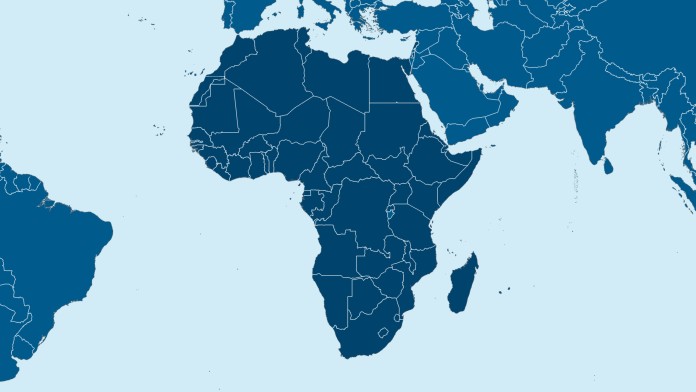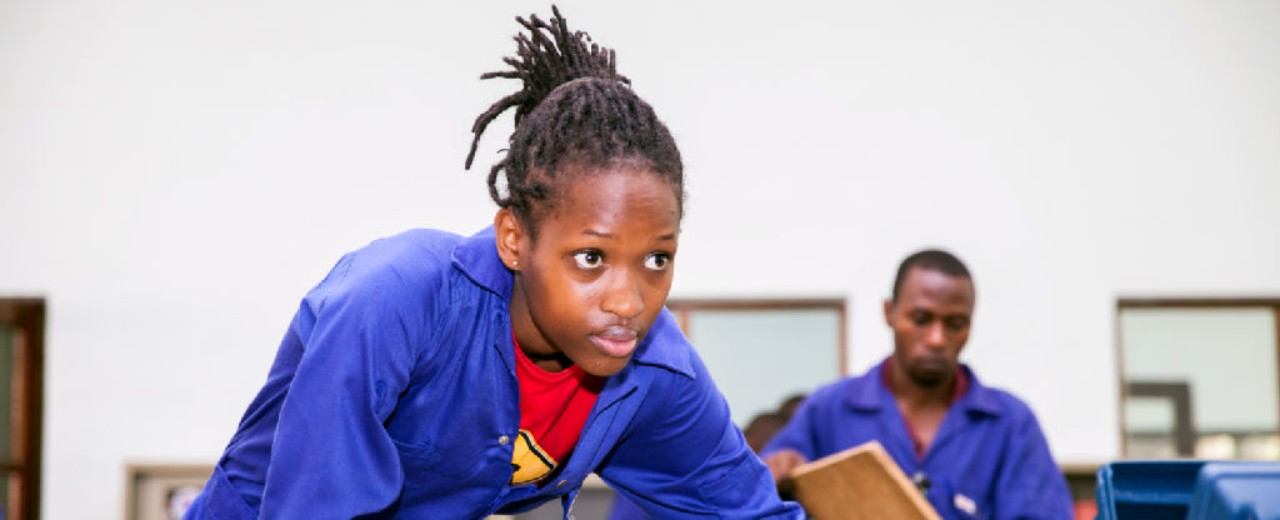
As of: 11/2023
Youth unemployment poses major challenges for Africa. The problem will only get worse, because Africa is the youngest continent of all. Every year, more than 20 million people finish school and have to look for work. Vocational training makes an important contribution to the qualification of young people and opens up new professional and personal prospects for them. This is why, working with the German Federal Government, the African Union (AU) has launched the “Skills Initiative for Africa”, which is intended to help improve practical vocational training in African countries. KfW is financing the initiative on behalf of the German Federal Government in a joint programme between KfW and GIZ with EUR 88 million and a further EUR 13 million from EU funds. GIZ is providing around EUR 18 million for advisory services.
Africa is catching up: the economies of many countries on the continent have been growing at an above-average rate for years. Stabilising positive economic development requires a well-trained workforce. There are enough workers available in Africa – especially young ones. There should be sufficient opportunities to employ young people – in areas like agriculture, the development of modern infrastructure or the growing number of businesses. However, applicants often do not have the relevant knowledge or practical qualifications.
Vocational training is the key to reconciling the growing number of unemployed and the needs of the economy. In order for VET to meet the needs of businesses, vocational schools need to be well equipped and organised. Above all, training should be practical. However, this is precisely what many African countries lack. Companies are not involved, there is a lack of teachers, career-oriented curricula, and buildings (including the appropriate equipment), as well as scholarships, especially for young women and young people from poor families. This is where the Skills Initiative comes in.

The African Union (AU) and the Federal Ministry for Economic Cooperation and Development (BMZ) have jointly established this Pan-African training initiative. It aims to enhance vocational training on the continent in a competition of ideas. Initially, the pilot countries Tunisia, Nigeria, Cameroon, Kenya and South Africa were selected to act as multipliers in their respective regions in order to disseminate employment-oriented education and training. The project has now been extended to Ghana, Togo and Ethiopia.
The heart of the Skills Initiative is a new financing facility, which is located at the African Union Development Agency AUDA-NEPAD and is currently supported by KfW with EUR 88 million. The facility finances innovative employment-oriented projects in the eight pilot countries. When selecting projects, the relevance of a project for improving the training situation in the respective country plays a particularly important role.
The facility supports projects involving close cooperation with employers and the private sector in order to adapt training content to the needs of the labour market. It is also important that companies are involved in practical training. In addition, women and poor young people in particular should benefit from vocational training programmes. Project applications are evaluated transparently according to these criteria.
Applications are open to public and private organisations as well as non-governmental organisations and companies. These use the promotional funds for building or maintaining infrastructure, for technical or educational equipment and for scholarships. In addition, the facility provides funding for smaller, cutting-edge pilot projects. The range of projects is correspondingly wide, spanning from large-scale investments to forward-looking small-scale pilot projects.
The Skills Initiative for Africa promotes the professional prospects of young Africans by supporting and disseminating innovative approaches to practically oriented education and training. It works closely with the private sector to tackle a challenge facing the whole of Africa. The aim is to train more young people to find a job more easily – and to improve their personal prospects.
Vocational, demand-driven training and education make it easier for young people to find a job, which means that they earn a (higher) income. A particular focus here is on the training of young people from poorer population groups, in particular young women and girls.
The private sector boosts productivity and competitiveness by employing skilled workers. Companies from Germany, such as Lucas Nülle GmbH in Cameroon or Bosch-Rexroth AG in Tunisia, are also participating in the project and contributing to improving the quality of training. In the pilot countries, innovative centres and programmes of vocational training and education are being created with a regional presence. The selected local partners also benefit from increased visibility of their initiatives and the dissemination of their innovative approaches at regional and continental level through an African dialogue platform.
The project contributes to the achievement of these following United Nations Sustainable Development Goals:
KfW Group
KfW Development Bank
Health, education and social protection
Eastern Africa and the African Union
Share page
To share the content of this page with your network, click on one of the icons below.
Note on data protection: When you share content, your personal data is transferred to the selected network.
Data protection
Alternatively, you can also copy the short link: https://www.kfw-entwicklungsbank.de/s/enzBY5Yo
Copy link Link copied